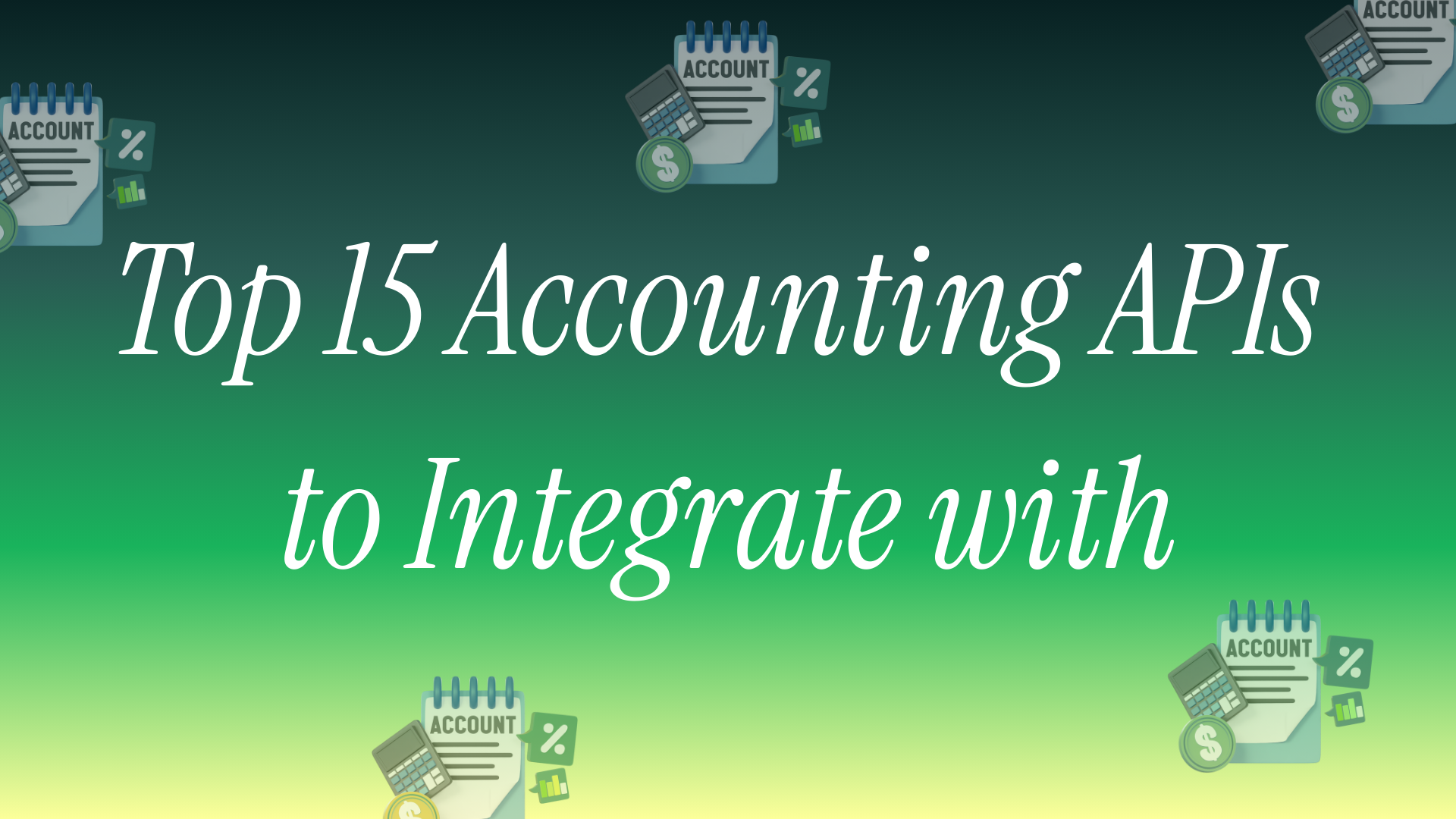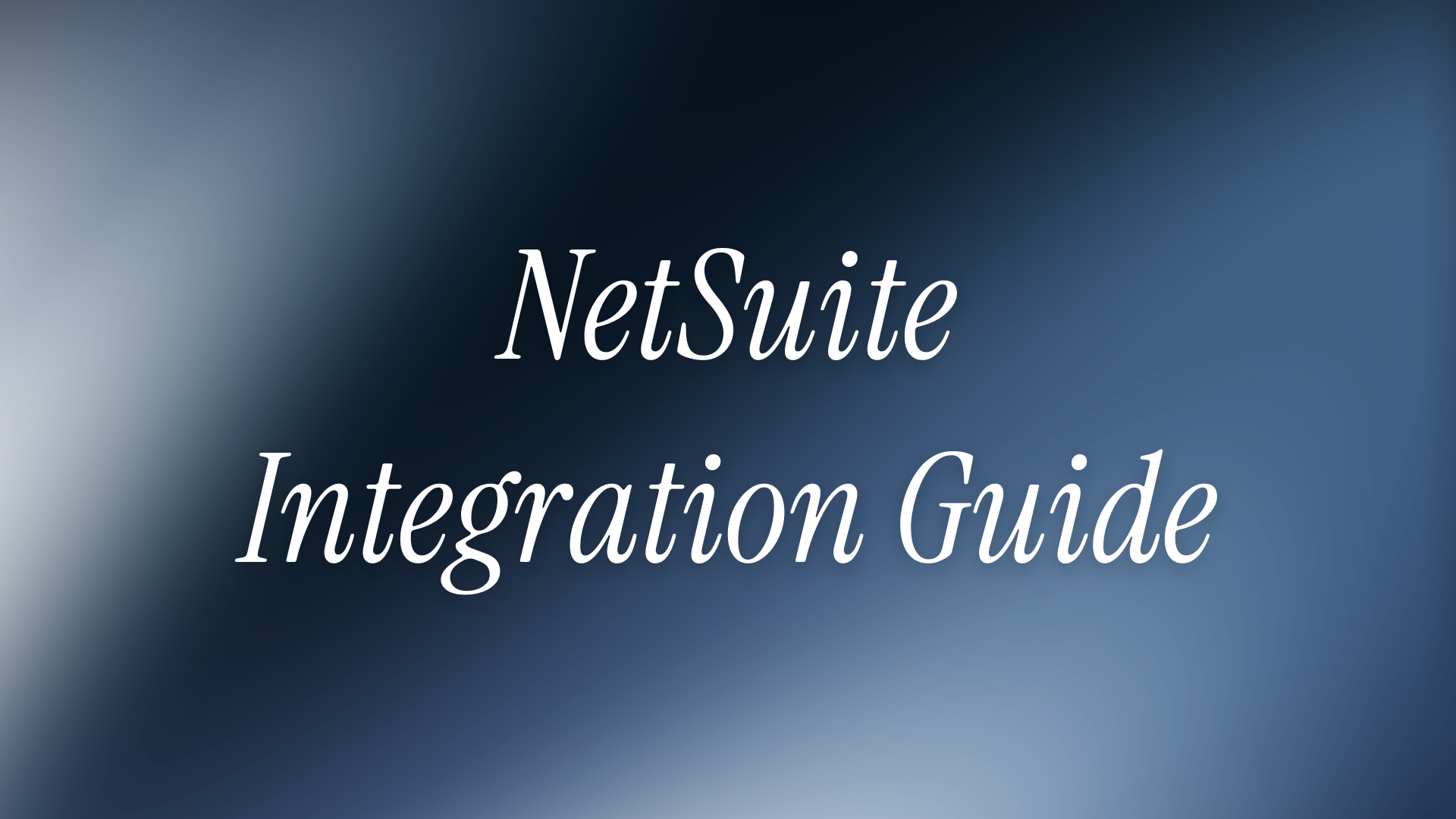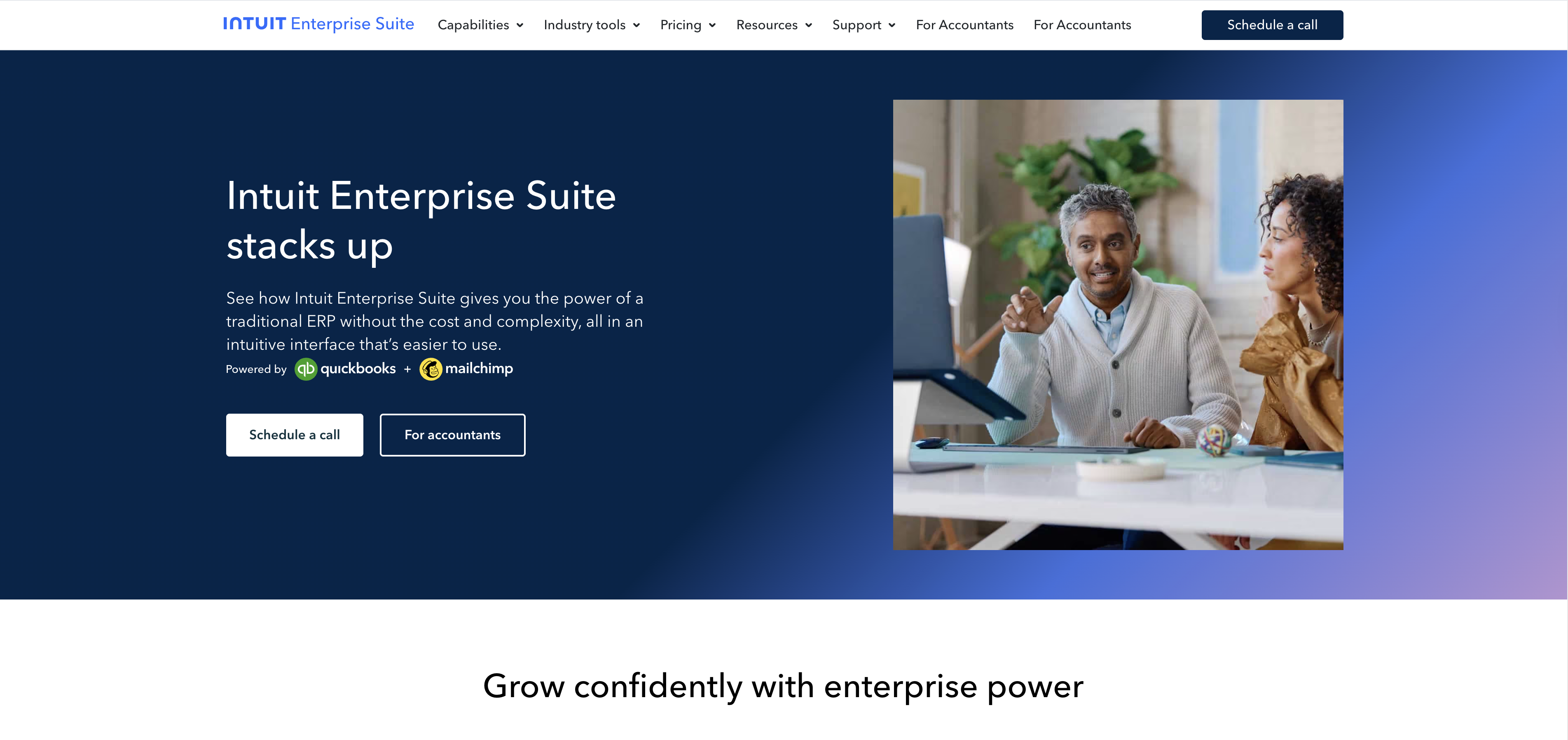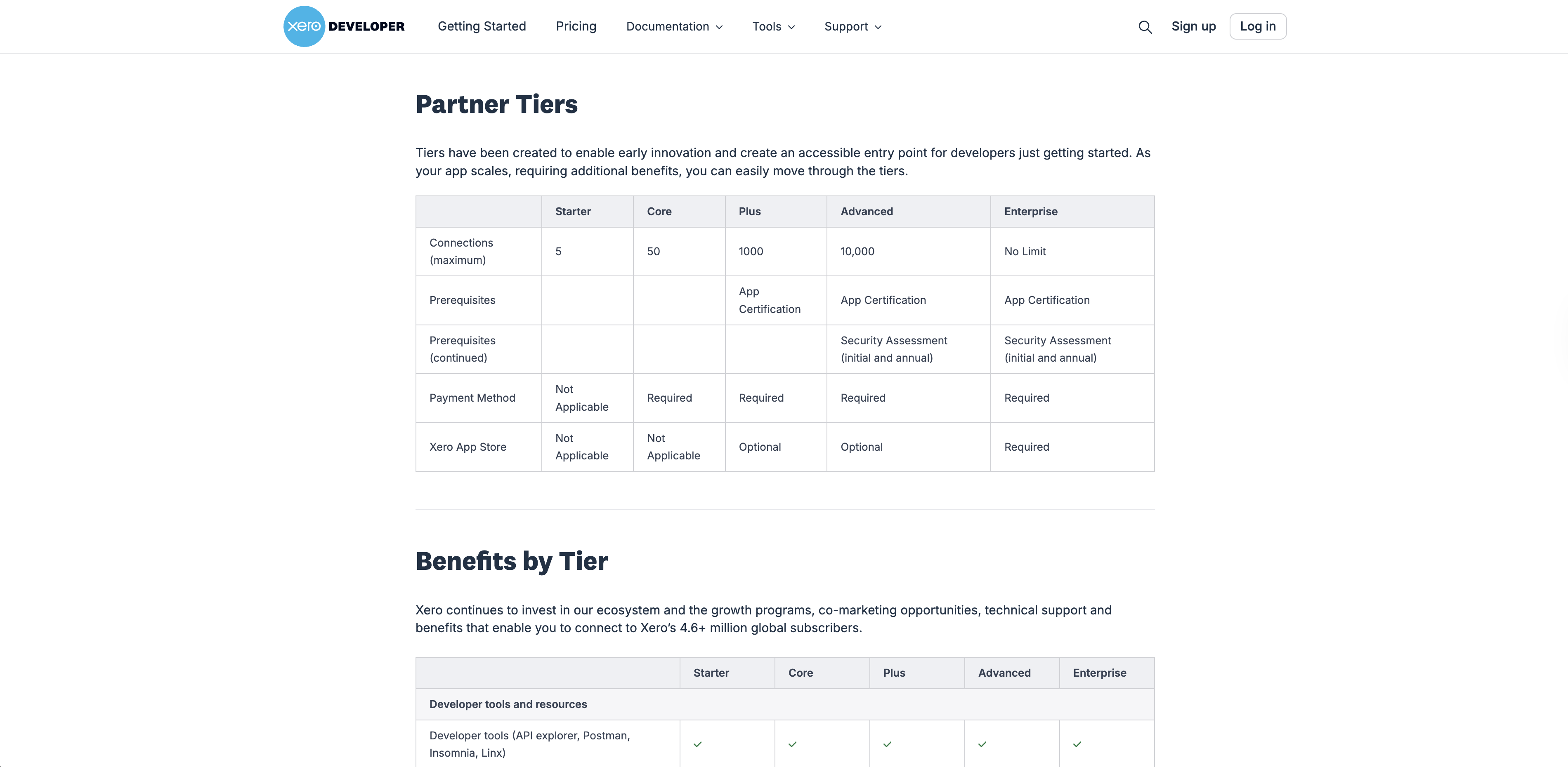Modern SaaS platforms can't operate without robust financial data connections. Fintech infrastructure, vertical SaaS solutions, and marketplace platforms all depend on accounting API integrations to handle invoicing, payments, compliance, and reconciliation at scale.
The accounting API landscape continues to evolve rapidly in 2026. Providers are shipping better developer experiences, AI-powered automation, and stronger compliance frameworks. Enterprise-grade security and real-time data synchronization are now table stakes, not differentiators.
This analysis covers 15 accounting APIs that matter most for technical decision-makers building integrations in 2026. Each section breaks down core strengths, key capabilities, and practical implementation scenarios to help you evaluate the right fit for your platform.
1. Xero API
Xero is a cloud-based accounting software from New Zealand that dominates the SME market in Australia, UK, and New Zealand, with growing US presence. Known for its intuitive interface and strong bank connectivity.

What it's good for: SME-focused SaaS platforms requiring streamlined onboarding and automated workflows
Key features:
- Bank feed reconciliation with 21,000+ financial institutions globally
- Invoice automation with customizable templates and approval workflows
- Multi-country payroll processing with local tax compliance
- Real-time financial reporting with 60+ standard reports and custom report builder
- OAuth 2.0 authentication with granular permission scopes
Example use case: An expense management SaaS automatically syncs employee transactions from bank feeds, categorizes expenses using Xero's chart of accounts, and generates monthly reports for client review without manual data entry.
2. QuickBooks Online API
QuickBooks is Intuit's cloud accounting platform that holds approximately 80% market share among US small businesses. Deeply integrated with the US tax system and accounting practices.

What it's good for: Platforms serving US small businesses and accounting professionals with complex tax requirements
Key features:
- Embedded QuickBooks Payments processing with ACH and credit card support
- Automated sales tax calculation with jurisdiction-specific rates across all US states
- Time tracking integration with payroll and project costing
- Advanced query capabilities with SQL-like filtering and batch operations
- Real-time webhook notifications for immediate data synchronization
Example use case: A B2B invoicing platform generates client invoices through QuickBooks, automatically applies correct sales tax rates by jurisdiction, and triggers payment collection workflows while maintaining full audit trails for tax reporting.
QuickBooks Desktop API
While QuickBooks Online dominates the small business market, many established businesses still rely on QuickBooks Desktop for its advanced features and data control. Unlike the straightforward REST API of QuickBooks Online, QuickBooks Desktop integration requires a fundamentally different approach using SOAP services and the QuickBooks Web Connector.
The integration complexity is significant – you're not making HTTP calls to QuickBooks, but building a SOAP server that the QuickBooks Web Connector polls for work. This reversed architecture requires understanding QBXML, session management, and Windows COM components. For platforms targeting enterprise clients or established businesses that refuse cloud migration, QuickBooks Desktop integration becomes essential. The 3.7 million Desktop users represent a substantial market opportunity, particularly in the Enterprise segment where Intuit continues to focus their efforts.
When to consider QuickBooks Desktop integration:
- Companies with advanced inventory management needs
- Enterprise clients with complex multi-entity structures
- Businesses with strict data residency requirements
- Industries with specialized accounting workflows not supported in Online
- Clients with existing QuickBooks Desktop investments and workflows
For developers considering this path, our comprehensive guide covers the complete implementation process: How to Build an Integration with QuickBooks Desktop in 2026. The guide explains the SOAP service architecture, QBXML formatting, Web Connector configuration, and common pitfalls that can waste weeks of development time.
3. Sage Intacct API
Sage Intacct is an enterprise-grade cloud financial management system owned by Sage, designed specifically for complex organizations with multi-entity structures, advanced reporting needs, and strict compliance requirements.

What it's good for: Enterprise SaaS platforms managing multi-entity structures and complex financial operations
Key features:
- Multi-dimensional general ledger supporting unlimited custom dimensions for detailed reporting
- Automated AP/AR workflows with configurable approval routing and document management
- Real-time consolidated reporting across multiple legal entities and currencies
- Advanced project and grant accounting with budget controls and revenue recognition
- RESTful API with comprehensive webhook support and bulk data operations
Example use case: A procurement SaaS platform integrates expense data across subsidiaries in different countries, automatically routes approvals based on entity-specific workflows, and generates consolidated financial reports for parent company dashboards.
4. FreshBooks API
FreshBooks is a Toronto-based cloud accounting software specifically designed for freelancers, consultants, and small service businesses. Focuses heavily on time tracking and project-based billing.

What it's good for: SaaS platforms serving freelancers and project-based small businesses
Key features:
- Integrated time tracking with automatic invoice generation based on billable hours
- Project-based expense categorization with photo capture for receipts
- Client portal for invoice approvals, project updates, and payment processing
- Recurring billing automation with dunning management for failed payments
- Mobile-optimized API design with offline synchronization capabilities
Example use case: A project management SaaS captures billable hours from integrated time tracking, automatically generates invoices based on project rates, and sends them to clients through FreshBooks' client portal while updating project profitability metrics in real-time.
5. Zoho Books API
Zoho Books is part of Zoho's comprehensive business software suite, offering full-featured accounting at competitive pricing. Popular among price-sensitive startups and small businesses needing integrated business tools.

What it's good for: Cost-conscious startups needing comprehensive accounting functionality without enterprise pricing
Key features:
- Advanced subscription billing with automated recurring revenue management and dunning
- Multi-currency support with real-time exchange rates and currency gain/loss tracking
- Inventory management with stock level tracking, reorder points, and landed cost calculations
- Project accounting with time tracking, budget controls, and profitability analysis
- Banking integration supporting 2,800+ financial institutions worldwide
Example use case: A subscription SaaS platform manages recurring customer billing through Zoho Books, automatically handles failed payments and dunning sequences, tracks monthly recurring revenue, and generates investor reports with real-time subscription metrics.
6. NetSuite API
NetSuite is Oracle's comprehensive cloud ERP system that combines accounting, CRM, inventory, and e-commerce. The leading choice for mid-market companies needing unified business management beyond basic accounting.

What it's good for: Mid-market and enterprise platforms requiring unified ERP and accounting capabilities
Key features:
- Multi-subsidiary consolidation with automated inter-company eliminations and currency translation
- Global tax compliance supporting VAT, GST, and sales tax across 100+ countries
- Advanced workflow automation with multi-level approval hierarchies and escalation rules
- Extensive customization through custom fields, record types, and SuiteScript development
- SuiteQL for complex data queries and SuiteAnalytics for advanced reporting
Example use case: A global marketplace platform synchronizes vendor payouts across multiple countries, automatically handles tax withholding requirements by jurisdiction, manages currency conversions, and provides vendors with localized tax documentation through NetSuite's multi-subsidiary architecture.
7. Open Ledger API
Open Ledger is a modern fintech infrastructure provider offering embedded accounting capabilities built specifically for software companies. Features AI-powered automation and developer-first architecture.

What it's good for: Fintech platforms requiring modern embedded accounting infrastructure with AI capabilities
Key features:
- Schema-level customization allowing industry-specific chart of accounts and workflows
- AI-powered transaction categorization with machine learning-based anomaly detection
- Real-time double-entry bookkeeping with immediate consistency and audit trails
- Enterprise security with SOC 2 Type II, ISO 27001, and GDPR compliance
- Flexible API options supporting both REST and GraphQL with real-time subscriptions
Example use case: A fintech app embeds real-time accounting ledgers for user investment accounts, uses AI to automatically categorize transactions, detects unusual spending patterns, and provides users with tax-optimized reporting while maintaining regulatory compliance.
8. Microsoft Dynamics 365 Business Central API
Microsoft Dynamics 365 Business Central is Microsoft's cloud-based ERP solution that combines accounting with business management tools. Deeply integrated with Microsoft's ecosystem including Office 365, Power Platform, and Azure services.

What it's good for: Enterprise platforms operating within Microsoft ecosystems requiring integrated finance and operations
Key features:
- Native Office 365 integration with Excel, Outlook, and Teams for seamless user experience
- Advanced manufacturing and supply chain modules beyond basic accounting
- AI-powered bank reconciliation with automated transaction matching and anomaly detection
- Enterprise security through Azure Active Directory with role-based access controls
- Flexible integration through OData endpoints and custom API development
Example use case: A procurement SaaS platform integrates with existing Dynamics 365 deployments, automatically creates purchase orders from approved requisitions, syncs vendor information with Active Directory, and generates Power BI reports for spend analysis across departments.
9. Tipalti API
Tipalti is a specialized accounts payable automation platform focused on global supplier payments, tax compliance, and risk management. Not a full accounting system but handles the complex aspects of vendor management and payments.

What it's good for: Platforms managing complex global payment operations with automated compliance requirements
Key features:
- Automated vendor onboarding with tax form collection (W-9, W-8BEN) and compliance verification
- Global payment processing supporting 120+ currencies and multiple payment methods
- Tax compliance automation including 1099 generation, tax withholding, and VAT handling
- Advanced risk management with fraud detection, sanctions screening, and compliance monitoring
- Self-service supplier portal with payment status tracking and tax document management
Example use case: A marketplace platform automates the entire vendor payment lifecycle, from onboarding international suppliers with proper tax documentation to processing payments in local currencies while handling tax withholding requirements and generating compliance reports for multiple jurisdictions.
10. Acumatica API
Acumatica is a cloud-native ERP platform known for its unlimited user licensing model and flexible architecture. Popular among mid-sized companies wanting enterprise capabilities without per-user costs.

What it's good for: Cloud-first mid-sized companies needing flexible accounting solutions with unlimited user licensing
Key features:
- Unified general ledger with unlimited dimensions for detailed cost tracking and reporting
- Configurable workflow engine supporting complex approval processes and business rules
- Multi-company and multi-currency support with automated consolidation and translation
- Custom business logic development through generic inquiries and customization framework
- Modern API architecture with both REST and OData endpoints supporting real-time integrations
Example use case: A vertical SaaS solution for construction companies integrates project accounting data, tracks job costs across multiple sites, manages subcontractor payments, and provides real-time profitability analysis while supporting unlimited field users without per-seat licensing costs.
11. Exact Online API
Exact Online is a Dutch cloud ERP platform that dominates the European mid-market, particularly strong in Netherlands, Germany, and UK. Focuses on comprehensive business management with robust accounting core.

What it's good for: European mid-market SaaS platforms requiring multi-country compliance and comprehensive business management
Key features:
- European VAT compliance with automated reporting for multiple EU jurisdictions
- Multi-company consolidation with inter-company transactions and eliminations
- Advanced project accounting with resource planning and profitability tracking
- Manufacturing and distribution modules beyond standard accounting
- REST API with comprehensive coverage of all business objects and real-time webhooks
Example use case: A European logistics SaaS platform integrates with Exact Online to manage multi-country VAT compliance, automatically generates VAT returns for different EU member states, and provides consolidated financial reporting across subsidiaries while handling inter-company billing.
12. FreeAgent API
FreeAgent is a UK-based accounting platform designed specifically for freelancers, contractors, and micro-businesses. Particularly strong in the UK market with deep integration into UK tax and banking systems.

What it's good for: UK-focused SaaS platforms serving freelancers, contractors, and micro-businesses
Key features:
- UK tax compliance with automated Self Assessment and VAT return preparation
- IR35 compliance tools for contractor tax calculations
- Mileage tracking with HMRC-approved rates and automatic expense categorization
- Banking integration with major UK banks including real-time transaction feeds
- Time tracking with automatic invoice generation and project profitability analysis
Example use case: A contractor management SaaS platform integrates FreeAgent to automatically track project expenses, calculate IR35 compliance status, generate invoices with correct VAT treatment, and prepare Self Assessment returns for contractor clients.
13. ClearBooks API
ClearBooks is a UK cloud accounting platform focused on small businesses and accounting practices. Known for its strong multi-currency capabilities and accounting practice management features.

What it's good for: UK accounting practices and small business SaaS platforms requiring practice management capabilities
Key features:
- Multi-client practice management with role-based access and client portals
- Advanced multi-currency support with automated exchange rate updates
- UK tax compliance including VAT, Corporation Tax, and payroll (RTI) submissions
- Banking integration with automatic bank reconciliation and duplicate detection
- Comprehensive project accounting with time tracking and profitability analysis
Example use case: An accounting practice management SaaS integrates ClearBooks to manage multiple client accounts, automatically imports bank transactions for all clients, generates VAT returns in bulk, and provides clients with real-time access to their financial data through branded portals.
14. DualEntry API
DualEntry is a modern accounting infrastructure platform built specifically for SaaS companies and digital businesses. Offers programmatic accounting with developer-first design and real-time financial operations.

What it's good for: SaaS platforms requiring programmable accounting infrastructure with real-time financial operations
Key features:
- Programmatic double-entry bookkeeping with API-first transaction creation
- Real-time financial reporting with customizable dashboards and metrics
- Automated revenue recognition for subscription and usage-based billing models
- Multi-entity support with automated consolidation and inter-company eliminations
- Webhook-driven architecture with immediate transaction processing and notifications
Example use case: A B2B SaaS platform uses DualEntry to automatically recognize subscription revenue according to ASC 606 standards, tracks customer acquisition costs and lifetime value in real-time, and generates investor-ready financial reports with automated journal entries for complex pricing models.
15. DATEV API
DATEV is Germany's leading accounting software provider, serving over 40,000 accounting practices and 700,000 businesses. Deeply integrated with German tax law, banking systems, and regulatory requirements.

What it's good for: German-focused SaaS platforms requiring deep compliance with German accounting standards and tax regulations
Key features:
- Complete German tax compliance including Umsatzsteuervoranmeldung (VAT returns) and annual tax filings
- Integration with German banking systems supporting SEPA payments and MT940 formats
- Automated payroll processing with German social security and tax withholding calculations
- Digital audit trail (GoBD) compliance with tamper-proof transaction logging
- Practice management tools for tax advisors with client portal and document management
Example use case: A German payroll SaaS platform integrates DATEV to automatically calculate employee taxes and social security contributions, generates compliant payroll reports for tax advisors, and submits required filings to German tax authorities while maintaining GoBD-compliant audit trails.
Key Trends Shaping Accounting APIs in 2026
Automation-first architecture has become standard across platforms. Modern accounting APIs now handle routine tasks like bank reconciliation, invoice generation, and expense categorization without manual intervention. This shift reduces implementation complexity and ongoing maintenance overhead for development teams.
AI-powered financial insights are moving beyond basic reporting. Platforms like Open Ledger integrate machine learning for transaction classification, anomaly detection, and predictive analytics. These capabilities help SaaS platforms provide more value to end users while reducing support burden.
Compliance automation addresses the growing regulatory complexity. APIs now handle tax calculations, regulatory reporting, and audit trail maintenance automatically. This is particularly valuable for platforms serving multiple geographic markets with different compliance requirements.
Developer-first experiences have improved significantly. Most platforms now provide comprehensive SDKs, sandbox environments, and webhook systems. Schema-level customization allows platforms to adapt APIs to industry-specific workflows without extensive custom development.
Real-time data synchronization has become a baseline requirement. Modern accounting APIs eliminate the batch processing delays that previously complicated financial reporting and reconciliation workflows.
Choosing the Right Accounting API for Your Platform
Your target market determines API selection more than feature comparisons. Platforms serving freelancers need different capabilities than those targeting enterprise clients. FreshBooks excels for project-based billing, while Sage Intacct handles complex multi-entity requirements.
Compliance requirements often narrow choices significantly. US-focused platforms typically choose QuickBooks for tax automation, while global platforms need NetSuite's multi-jurisdiction capabilities. Consider your customers' regulatory environment before evaluating technical features.
Integration depth matters more than breadth for most implementations. Deep integration with core accounting functions (GL, AP/AR, reporting) provides more value than surface-level connections to numerous modules. Focus on the workflows that directly impact your customers' daily operations.
Developer support quality varies significantly across providers. Evaluate documentation completeness, SDK maintenance, sandbox reliability, and webhook consistency. Poor developer experience translates directly into longer implementation timelines and higher maintenance costs.
Where Unified APIs Solve Integration Complexity
SaaS companies typically need multiple accounting integrations to serve diverse customer bases. A UK-focused customer uses Xero, US SMBs prefer QuickBooks, and enterprise clients require Sage Intacct. Building and maintaining separate integrations for each platform creates significant technical debt.
Apideck's Unified Accounting API addresses this integration complexity through a single standardized interface. One integration provides access to all major accounting platforms, including the APIs covered in this analysis. The unified schema normalizes data structures across different providers, eliminating the need to handle varying field names, data formats, and authentication methods.
The platform maintains all connector updates, API versioning, and provider-specific changes. When QuickBooks ships a breaking change or Xero updates authentication requirements, Apideck handles the updates without requiring code changes in your application. This approach reduces ongoing maintenance overhead while accelerating time-to-market for new integrations.
Development teams can implement accounting integrations in weeks rather than months. Standardized webhooks, consistent error handling, and unified documentation eliminate the complexity of learning multiple provider-specific APIs. Sandbox environments allow safe testing across all supported platforms without managing separate development accounts.
Looking Ahead
Accounting APIs will remain central to SaaS platform success in 2026. The winners will be platforms that integrate deeply with their customers' financial workflows while maintaining the flexibility to support diverse business models and compliance requirements.
The accounting API you choose should align with your customer base and technical requirements. For platforms serving multiple market segments, a unified approach eliminates the complexity of building and maintaining separate integrations while future-proofing your integration strategy as customer needs evolve.
Consider whether building individual integrations advances your core product value or simply creates maintenance overhead. The time saved on integration development can be redirected toward features that differentiate your platform in the market.
Ready to get started?
Scale your integration strategy and deliver the integrations your customers need in record time.









